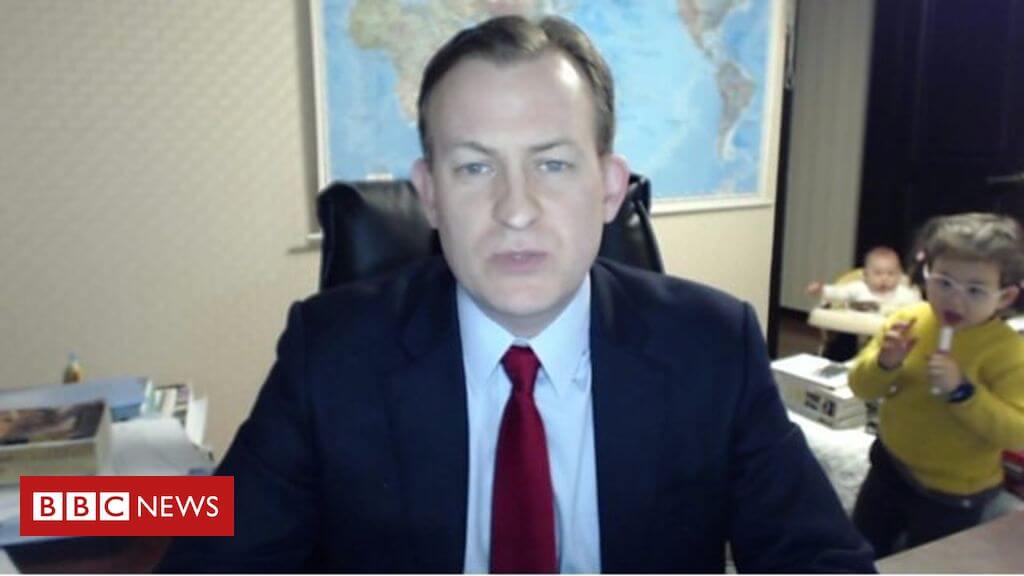I gained a profound insight when my coworker’s 6-year old son walked in on our zoom meeting.
Kids Interrupting Meetings
We’ve all seen the video of the young kids walking in on their dad while he is being interviewed on BBC News. We laughed when Jimmy Fallon’s daughter interrupted his interview to announce she lost a tooth. With so many of us working from home and using Zoom, I’m sure we’ve all had something similar happen in our meetings. Just yesterday, my coworker’s 6-year old son walked in on our meeting.
When it’s your kid who walks in, you might get frustrated or embarrassed, but don’t get too upset. It’s happened to all of us. Interestingly, I find instances like this tend to endear us to each other.

Clayton Christensen’s Epiphany
When our meeting was interrupted yesterday, I was reminded of this classic story from Clayton Christensen:
One summer Saturday, we had a company picnic for our employees’ families in a park near our laboratories. There was nothing fancy about it, but it was a welcome opportunity to get a three-dimensional perspective of our colleagues’ lives.
I walked to the periphery of the group after everyone had arrived, just to figure out who belonged to whom. Out of the corner of my eye, I saw Diana, one of our scientists, and her husband, playing with their two children. Diana had a key position in the lab: she was an analytical chemist. Her job was to help the other scientists use our company’s specialized equipment so that they could know what elements were present in the compounds they created or with which they were working. By definition, waiting until the results came back from the test Diana ran occasionally frustrated some of the twenty or so scientists on the team—each of whom needed his or her test run as the highest priority. But it frustrated Diana even more. She wanted to help everyone, but as a start-up we couldn’t buy unlimited equipment. So there were a limited number of machines and only ten hours in Diana’s workday. As a result, her days were often filled with turf battles.
But that’s not what I saw at that moment. Instead, I was impressed by the love Diana and her husband clearly shared with their two children. Seeing her there, I began to gain a perspective of Diana in the full context of her life. She wasn’t just a scientist. She was a mother and a wife, whose mood, whose happiness, and whose sense of self-worth had a huge impact on her family. I began to think about what it must be like in her house in the morning, as she said good-bye to her family on her way to work.
Then I saw Diana in my mind’s eye as she came home to her family ten hours later, on a day that had gone badly. She felt underappreciated, frustrated, and demeaned; she learned little that was new. In that moment I felt like I saw how her day at work negatively affected the way she interacted in the evening with her husband and their young children.
This vision in my mind then fast-forwarded to the end of another day. On the one hand, she was so engaged by the experiment she was doing that she wanted to stay at work; but on the other, she was so looking forward to spending time with her husband and children that she clearly wanted to be at home. On that day, I saw her driving home with greater self-esteem—feeling that she had learned a lot, having been recognized in a positive way for achieving valuable things, and played a significant role in the success of some important initiatives for several scientists and for the company. I felt like I could see her go into her home at the end of that day with a replenished reservoir of esteem that profoundly affected her interaction with her husband and those two lovely children. And I also knew how she’d feel going into work the next day—motivated and energized. It was a profound lesson.
The Most Noble of Professions
Clayton Christensen concludes his story with this profound insight:
I used to think if you cared for other people, you need to study sociology or something like it. But when I compared what I imagined was happening in Diana’s home after the different days in our labs, I concluded, if you want to help other people, be a manager. If done well, management is among the most noble of professions. You are in a position where you have eight or ten hours every day from every person who works for you. You have the opportunity to frame each person’s work so that, at the end of every day, your employees will go home feeling like Diana felt on her good day.
More Than Just an Employee
We often characterize our coworkers simply based on their roles and responsibilities at work. This makes sense – whenever we see them, they’re at work, dressed in their work clothes, doing work. But people are so much more than just an employee.
I agree with some of the recent research on “Zoom fatigue” published in BBC, USA Today, the Wall Street Journal, and the New York Times. This research suggests video calls drain our energy for a variety of reasons – we’re self-conscious about seeing ourselves, we have to work harder to process non-verbal cues, we get frustrated by technology problems, internet latency disrupts the natural flow of conversation, etc.
I would much rather meet in person and gather around a table or a whiteboard to solve problems and resolve conflicts. However, one thing I have come to love about all these zoom meetings is getting to see the “full context” of others’ lives. It’s one thing to see a framed family picture on someone’s desk at work; it’s quite another thing to have a zoom meeting with them and see them in their homes in their more comfortable clothes getting interrupted by kids and pets.
Whole Person Paradigm
In managing myself and others, I’ve found there’s great wisdom in Stephen R. Covey’s concept of the “whole person paradigm.” People are multi-dimensional and we need to see them as more than machines. We need to view others as a combination of their 4 intelligences – physical, intellectual, emotional, and spiritual.
In a follow up book to his classic 7 Habits of Highly Effective People, Dr. Covey wrote a book called The 8th Habit. What is the 8th habit? It is to “find your voice and inspire others to find their voice.”
Opportunity
The next time you’re on a zoom meeting that gets interrupted by someone’s life outside of work, use it as an opportunity to see others in their full context through the whole person paradigm. We’re in this together. Let’s find our voice and help others find theirs.

